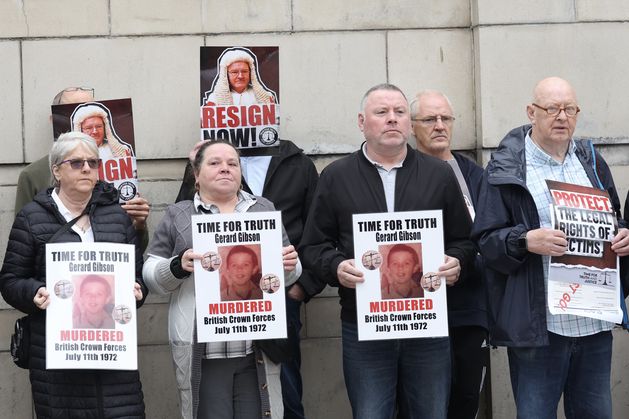The Commission has published its second annual work plan, setting out areas of focus and ambitions for 2025-26.
The body was set up under the Tories’ controversial Legacy Bill, which was opposed by all the parties here and the Irish Government.
The Irish launched legal action against the Bill in Europe on human rights grounds.
The Bill ended new Troubles-era cases and inquests as of May 1 last year, and offered a conditional amnesty. Bereaved families, victims and certain public authorities can instead request the ICRIR carry out an investigation.
The new Labour government has committed to repeal the bulk of the legislation, but said it will retain the ICRIR.
Chief executive of the ICRIR, Louise Warde Hunter, says the new year marks the “next important chapter of the Commission’s work” with the first of its reports likely to be published in the autumn.
As of December 9, 2024, the Commission says that 120 people have come forward and started an investigation “in the hope of finding the answers they have been seeking for so many years”.
Of those, 24 have reportedly moved into the Information Recovery stage of the process.
In addition, the Commission said it has accepted a request for an investigation from the Secretary of State.
“We are committed to getting the unvarnished truth for victims, survivors and families. That remains our unwavering focus for this year and beyond.” Ms Warde Hunter said.
“We are pursuing our investigations and will be publishing our first findings reports in the autumn. We know that answers, often long sought, cannot be rushed. We will continue to demonstrate care and diligence in how we deliver for those who have come to the Commission.”
The commission insists it operates independently of the Stormont Executive, UK Government and any other body or outside interest.
Established in December 2023, it aims to provide information to families, victims and survivors of Troubles-related deaths and injuries and promote reconciliation.
All historical inquests were shut down from from 1 May, 2024, with the ICRIR instead taking over the cases, and new civil cases have been prevented from being lodged in court.
The ICRIR determines what type of investigation is appropriate or necessary in different circumstances.
It could be a liability investigation that may lead to a criminal prosecution where judged appropriate, or a focused investigation, or a culpability investigation.
Its chief commissioner is former Lord Chief Justice Sir Declan Morgan, while its commissioner for investigations is Peter Sheridan, a former senior PSNI officer.
ICRIR chief commissioner Sir Declan Morgan said the needs of victims and survivors are key to how the body operates (ICRIR/PA)
In September, the Court of Appeal ruled that the new truth recovery body is currently not capable of carrying out human rights-compliant investigations into Troubles-era murders in Northern Ireland.
Senior judges held that the ICRIR cannot ensure effective participation for next of kin.
Government powers to veto the disclosure of sensitive material were also declared to be unlawful.
A spokesperson for the UK Government said then that it is committed to addressing the legacy of the past “in a way that can obtain the support of victims and survivors, and comply with our human rights obligations.”
A statement concluded: “We note the Court’s ruling and will take the necessary time to consider our next steps on this complex judgment.”
Speaking upon the publication of the ICRIR’S second annual work plan, Sir Declan Morgan said: “We have designed our TRIM (Trauma and Resiliency Informed Model) approach to address the needs of people as we work with them through this process.
“Their needs are uppermost in our minds as we take the work of the Commission forward into next year.
“We value open, honest and respectful dialogue with victims, survivors and families and wider stakeholders.
“Reconciliation can only be achieved in our community if we tell the unvarnished truth about what happened during the Troubles/Conflict.”
